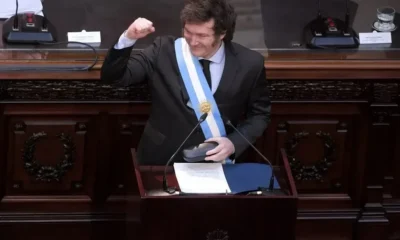INTERNACIONAL
A punto de cumplir 80 años y con Jair Bolsonaro bajo arresto domiciliario, Lula ya piensa en su reelección
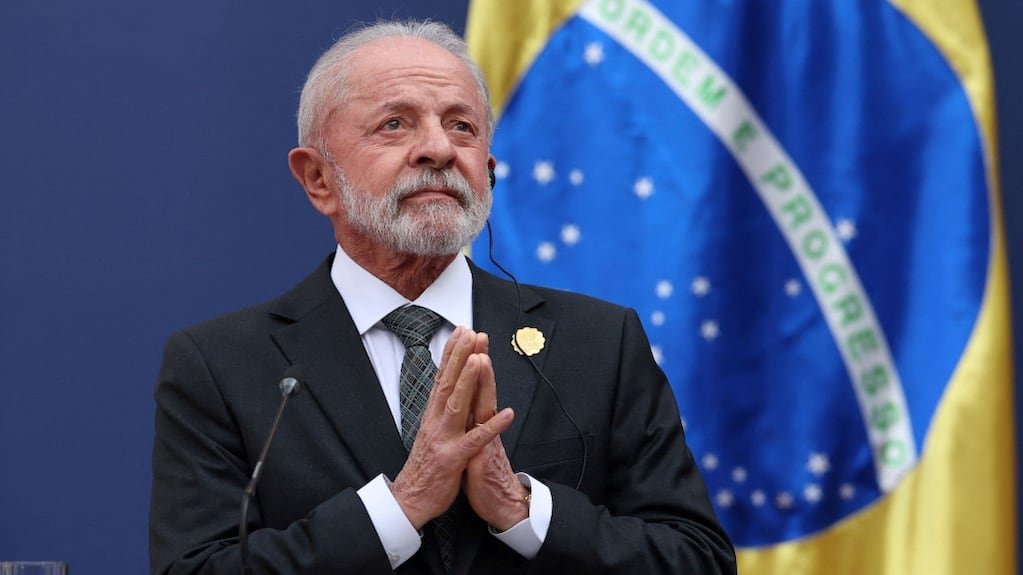
Sin herederos a la vista y con casi 80 años sobre sus espaldas, Lula ya piensa en su reelección en las presidenciales del año próximo en Brasil. No falta mucho, aunque en política es una eternidad.
De ganar las elecciones previstas para el 4 de octubre de 2026, el actual presidente brasileño asumiría su cuarto gobierno con 81 años, y dejaría el poder a los 85.
Leé también: Donald Trump firmó un polémico decreto para internar compulsivamente a las personas en situación de calle
El caudillo y fundador del Partido de los Trabajadores (PT) es consciente de eso. Pero también sabe que es el único capaz de aglutinar el voto “antibolsonarista” en un país virtualmente dividido en dos, y mucho más tras el arresto domiciliario de su archirrival y expresidente, Jair Bolsonaro, en una causa por golpismo.
“Para ser candidato tengo que ser muy honesto conmigo: necesito estar 100% de salud. Postularme y que pase lo que pasó con (Joe) Biden, jamás. Cuando hablo que tengo 80 y energía de 30, pueden creerme. Si yo fuera candidato, voy a ser candidato para ganar”, afirmó.
El fantasma Biden está muy cercano en el tiempo. El expresidente demócrata, entonces de 81 años, debió renunciar a su candidatura en plena campaña contra el actual mandatario, Donald Trump, ante sus visibles lagunas mentales y evidente deterioro físico. Pero esa situación aparece como algo muy alejado a la realidad de Lula.
¿Puede ser reelecto Lula en Brasil?
A Lula le falta un año y cinco meses para completar su tercer ciclo de gobierno. Fue presidente durante dos mandatos consecutivos, entre 2003 y 2011. Nada le impide disputar la reelección.
Hoy, la política brasileña está atravesada por una enorme grieta ideológica. Por un lado Lula y su alianza de izquierda, con socios de centro y conservadores, como su vicepresidente, Gerardo Alckmin. A diferencia de lo que sucede en la Argentina, Lula tiene una estrecha relación con su vice.
En el otro lado de la enorme fisura política, está Bolsonaro y su fiel ejército de seguidores, conformados por el ala más dura de la ultraderecha brasileña, sectores de derecha tradicional y quienes rechazan a Lula.
El expresidente quiere volver al Palacio del Planalto, pero tiene un serio problema por delante: no solo se encuentra bajo arresto domiciliario, sino que además, está inhabilitado hasta 2030. Y corre el riesgo de ser condenado hasta 40 años, por golpismo.
Su alineamiento con Trump, que lleva adelante una inédita presión contra el gobierno de Lula para dejar sin efecto las causas judiciales en su contra, no le está dando resultado.
Luiz Inacio Lula da Silva y su vice, Geraldo Alckmin (Foto: REUTERS/Pilar Olivares)
¿Cuáles son las alternativas reales de poder a Lula en la izquierda brasileña?
Lula no tiene herederos políticos de peso electoral en quien recostar su legado dentro de su propio partido. Tampoco el arrastre suficiente como para impulsar una candidatura, como hizo en 2011 con Dilma Rousseff.
Algunos de los dirigentes con más peso dentro del PT, como Camilo Santana, ministro de Educación y exgobernador de Ceará, no resistirían un balotaje. Tampoco su ministro de Hacienda, Fernando Haddad, derrotado por Bolsonaro en las elecciones de 2018.
Sin Lula, el cuadro más potable del oficialismo para disputar la presidencia en 2026 sería el propio Alckmin. Su vice, considerado un tecnócrata de derecha, ya fue candidato presidencial. De hecho, perdió contra el propio Lula en 2006.
Pero su eventual candidatura representaría un palpable giro hacia el centro de la alianza oficialista, más allá de que desde el PT le reconocen su enorme fidelidad.
Leé también: El bar y la vida nocturna del nieto influencer de Fidel Castro que divide a Cuba: “No tengo privilegios”
Por eso Lula piensa en postularse.
“El argumento más sólido (que tiene el presidente para buscar la reelección) es la ventaja en las encuestas”, le dijo a TN el analista brasileño Fernando Guarnieri, de la Universidad de San Pablo.
El último sondeo del Instituto de Investigaciones Sociales, Políticas y Económicas (Ipesbe, por sus siglas en portugués), al que accedió TN, muestra que en junio la aprobación del gobierno se ubicó en un 45% contra un 51% que desaprueba la gestión. Se trata del mayor índice de respaldo del año.
Un sondeo de Paraná Pesquisas revela que Lula le ganaría en primera vuelta a todos los candidatos que eventualmente reemplazarían a Bolsonaro, con una ventaja de tres a 1puntos sobre su esposa Michelle y sus hijos Eduardo y Flavio, así como frente el actual gobernador de San Pablo Tarcisio Gomes Da Freitas.
Sin embargo, la encuesta afirma que Lula perdería en un balotaje con Tarcisio y el mismo Jair Bolsonaro, hoy impedido de postularse.
“Otro argumento es que el PT no tiene otro liderazgo de peso reconocido por las tendencias y que el partido debe tener una candidatura propia -, afirmó Guarnieri-. Además, la popularidad de Lula no está lo bastante alta para ungir a una nueva Dilma. A no ser por su salud, no parece haber razón para que él no concurra a un nuevo mandato”.
En la vereda de enfrente, el panorama “es difícil de prever”. “La derecha tiene algunos liderazgos de peso en los Estados. Si fuera Tarcisio, por ejemplo, tendrá el apoyo del centrao (esa amalgama de partidos de centro que suele dar gobernabilidad a todos los gobiernos desde el Congreso). Pero lo que importa es el apoyo de Bolsonaro. Para el expresidente sería mejor alguien más próximo, como alguno de sus hijos. El juego para él es más complicado”, concluyó Guarnieri.
Lula Da Silva, Brasil, Jair Bolsonaro
INTERNACIONAL
Sharia law victim who fled Somalia issues endorsement in critical Senate race
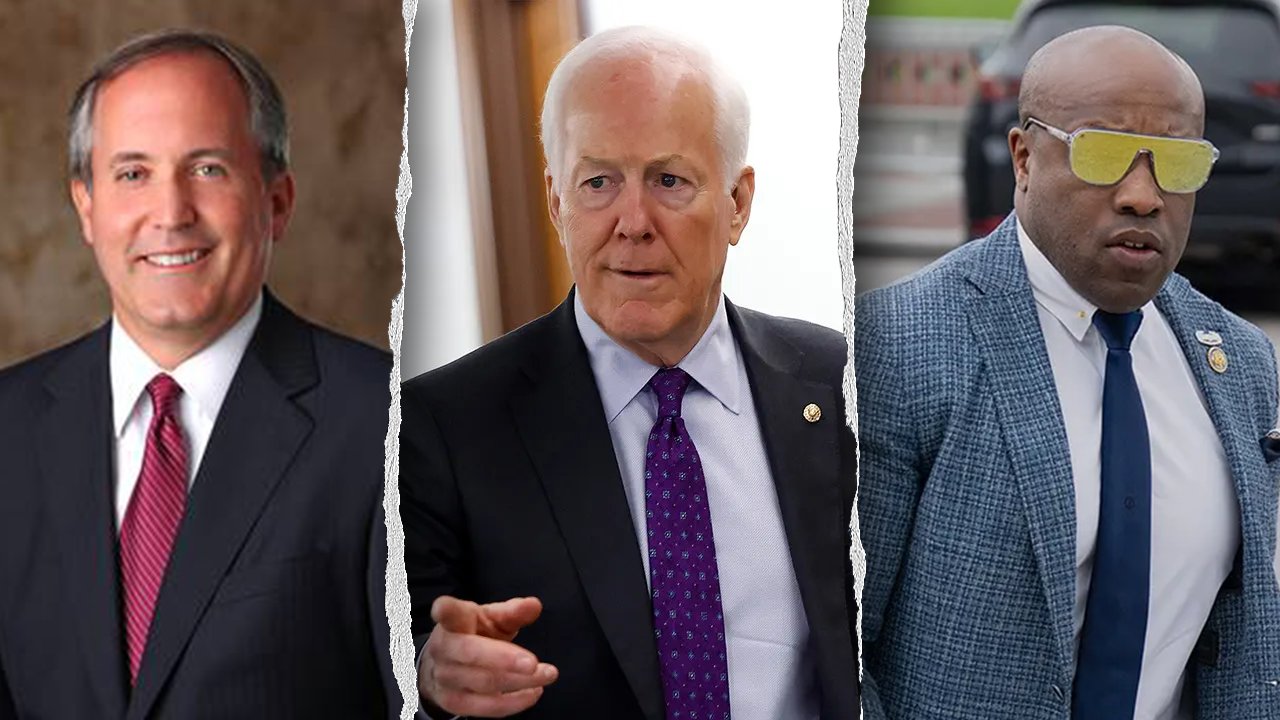
NEWYou can now listen to Fox News articles!
EXCLUSIVE: Ayaan Hirsi Ali, a high-profile women’s rights activist who fled Sharia law, has endorsed Sen. John Cornyn, R-Texas, for re-election in a critical Senate race that could determine whether the GOP retains its majority.
In a video announcing her endorsement, Ali, a speaker and author who fled Somalia after suffering female genital mutilation, said that «only John Cornyn has a proven record of stopping radical Islamic extremism.»
«I’ve seen firsthand what radical Islam does to women, to families, and to nations who ignore the warning signs. America is not immune, and neither is Texas,» she went on, adding, «That’s why experience matters.»
This comes amid an already contentious Senate primary race in Texas between Cornyn, who has held the seat since 2002, Texas Attorney General Ken Paxton and Rep. Wesley Hunt, R-Texas. President Donald Trump has not weighed in on the race, though he recently hinted he may do so, saying, «My problem is I’m friendly with all of them.»
TEXAS GOVERNOR EXPOSES ‘HYPOCRISY’ OF DEM PUSH FOR STATES’ RIGHTS IN MINNESOTA AFTER BIDEN YEARS
Left: Texas Attorney General Ken Paxton. Center: Sen. John Cornyn, R-Texas. Right: Rep. Wesley Hunt, R-Texas. (Official website of Texas Attorney General Ken Paxton; Kevin Dietsch/Getty; Bill Clark/CQ-Roll Call, Inc via Getty Images)
Texas leaders have recently sounded the alarm about the growth of Sharia law in the Lone Star State. Republican Gov. Greg Abbott recently issued a proclamation designating the Council on American-Islamic Relations (CAIR) and the Muslim Brotherhood as «foreign terrorist organizations» and «transnational criminal organizations» under Texas law.
Ali emphasized the importance of Cornyn’s experience in pushing back against Sharia law, taking subtle jabs at Paxton and Hunt, who would be first-term senators.
She said that Cornyn «has taken the threat seriously when others choose denial or political games.»
«If you want a Texas that protects its people and defends its values, you need a leader who understands the danger and knows how to stop it,» she said.
«To keep Texas strong and safe from radical Islam, vote John Cornyn.»
GOP GOVERNOR LAYS OUT PLAN TO ‘PURGE’ TERRORISTS AND TERROR SUPPORTERS FROM STATE
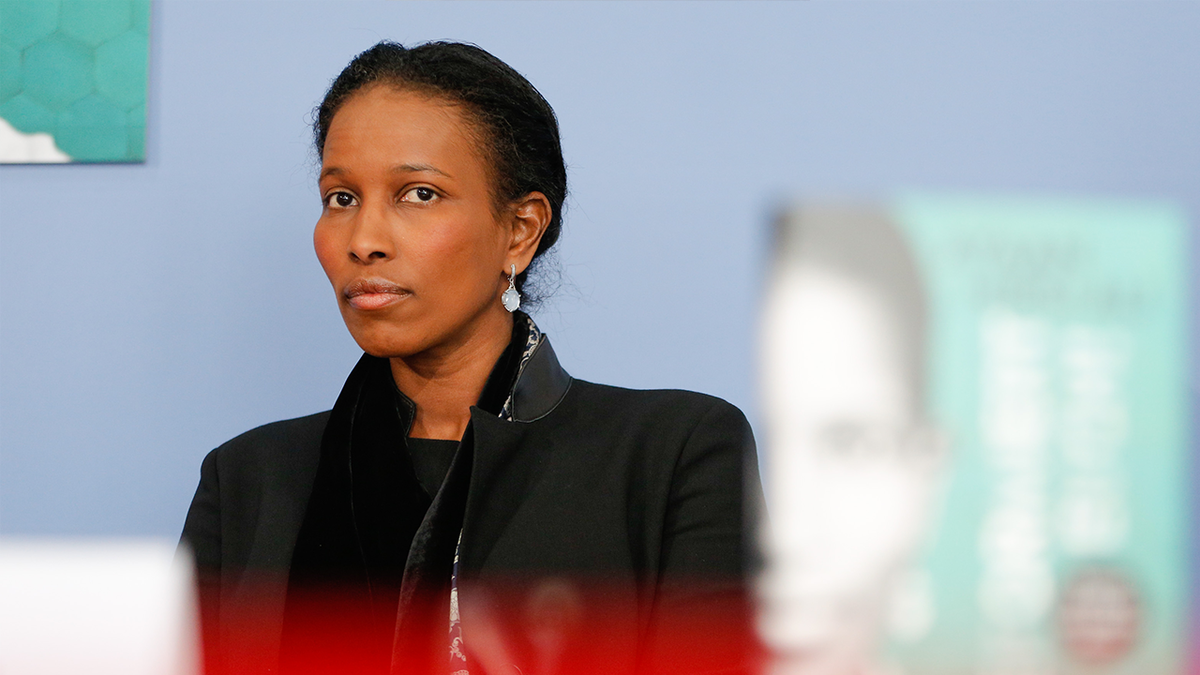
Author Ayaan Hirsi Ali attends a book presentation of ‘Reformiert Euch! Warum der Islam such aendern muss – Refurbished you! Why Islam must change’ on April 20, 2015 in Berlin, Germany. ( (Photo by Christian Marquardt/Getty Images))
In response, Cornyn told Fox News Digital, «I am honored to be endorsed by Ayaan Hirsi Ali, who has spoken fearlessly about the dangers of radical Islam from her own experience.»
Cornyn’s office pointed to several actions he has taken as senator to push back on Sharia Law in the U.S., including recently Introducing the Defeat Sharia Law in America Act, which the office said aims to clarify that discriminating based on Sharia Law is a violation of the Civil Rights Act, co-sponsoring the No Sharia Act, which it said prohibits U.S. courts from enforcing foreign laws or judgments that violate the Constitution and calling on the U.S. Department of Justice to investigate «EPIC Ranches City» in Texas, a master-planned development that allegedly marketed itself as a Muslims-only community.
In 2025, Cornyn also introduced legislation to strip the tax-exempt status from organizations that provide material support to designated terrorist groups, specifically targeting CAIR. He also co-sponsored the Muslim Brotherhood Terrorist Designation Act, which directs the Secretary of State to designate the group as a Foreign Terrorist Organization.
«For many years now, I have worked to confront this radical ideology, from working to ban Sharia Law, to identifying, arresting and prosecuting terrorist organizations, and calling on the DOJ to investigate the EPIC City development,» Cornyn said. «I will continue to protect Texans from the threat of radical Islamic ideology anywhere in our country.»
TEXAS REPUBLICANS LAUNCH ‘SHARIA FREE AMERICA CAUCUS’ AIMED AT DEFENDING ‘WESTERN CIVILIZATION’

People arrive at a mosque to attend Friday prayers, in Plano, Texas, on April 11, 2025. (RONALDO SCHEMIDT/AFP via Getty Images)
Ali’s endorsement comes just over two weeks until the GOP’s primary election day in Texas.
Cornyn, a high-ranking Senate Republican, has also been endorsed by the National Republican Senatorial Committee as well as the National Border Patrol Council.
Meanwhile, Paxton, who has served as the top attorney for Texas since 2015, was recently endorsed by Turning Point Action, the political arm of the late Charlie Kirk’s Turning Point USA. Hunt, a U.S. Army veteran, has been endorsed by Veterans for America First.
Both Paxton and Hunt have also spoken out against Sharia Law in Texas. Paxton sued CAIR and the Muslim Brotherhood, seeking to shut them down and bar their operations in Texas. He also sued the developers behind EPIC as well, arguing they violated Texas securities law by selling investment interests without proper registration and by failing to verify accredited investor status as required.
Hunt has said Sharia law is «completely incompatible with the founding principles of the United States of America» and argued it should have no place in U.S. legal or civic systems.
TEXAS DEMOCRAT FEUD GROWS AS COLIN ALLRED CLAIMS JAMES TALARICO MADE OFFENSIVE REMARK ABOUT FAMILY, CAMPAIGNS

Rep. Jasmine Crockett (D-TX) questions former Special Counsel Jack Smith as he testifies during a hearing before the House Judiciary Committee in the Rayburn House Office Building on Capitol Hill on January 22, 2026 in Washington, D.C. State Representative James Talarico, a Democrat from Texas and US Senate candidate, during a debate at the 2026 Texas AFL-CIO COPE Convention in Georgetown, Texas, US, on Saturday, Jan. 24, 2026. (Al Drago/Getty Images; Bob Daemmrich/The Texas Tribune/Bloomberg via Getty Images)
All three Republican candidates have touted their support for Trump and their records of supporting his agenda in their respective offices.
Trump recently told reporters that he may weigh in on the primary race soon, saying, «I’m giving it a very serious look.»
«You know, my problem is I’m friendly with all of them. I like all of them, all three,» Trump said.
«But you’ll be seeing soon,» he went on. «They say whoever I endorse wins. That’s probably right.»
CLICK HERE TO DOWNLOAD THE FOX NEWS APP
Whichever Republican emerges victorious from the primary election will face off against either leading Democratic voice Rep. Jasmine Crockett, D-Texas, or progressive rising star state Rep. James Talarico.
According to Paxton’s office, Ali will appear at a campaign roundtable with religious leaders in North Texas later this week.
elections,senate elections,texas,islam,republicans
INTERNACIONAL
Ukraine’s Zelenskyy says he met with Democratic senators, thanked US for support

NEWYou can now listen to Fox News articles!
Ukrainian President Volodymyr Zelenskyy said in a post on X that he met with U.S. Sens. Richard Blumenthal, D-Conn., and Sheldon Whitehouse, D-R.I.
«Thank you for seeing us,» Blumenthal can be heard saying in a video included in Zelenskyy’s post. «We look forward to hearing from you, ah, about how we can be more helpful.»
Zelenskyy indicated in the post that during the meeting he «thanked the United States for its strong bipartisan support and work for peace.»
UK, GERMAN DEFENSE OFFICIALS DEFEND MILITARY BUILDUP UNDER RUSSIAN THREATS
Volodymyr Zelenskyy attends the 62nd Munich Security Conference on Feb. 14, 2026, in Germany. (Gisela Schober/Getty Images)
President Donald Trump has been trying to help broker peace between Russia and Ukraine, but the two nations remain locked in conflict.
«Before our meeting, the senators met with children whom Ukraine managed to return from Russia. Thank you, this is truly important,» Zelenskyy noted in the post.
RUBIO MEETS WITH ZELENSKYY AHEAD OF CRUCIAL GENEVA TALKS, SAYS TRUMP WANTS SOLUTION THAT ‘ENDS BLOODSHED’

Sens. Sheldon Whitehouse, left, and Richard Blumenthal speak at a press conference following a meeting with Ukraine’s President Volodymyr Zelenskyy in Kyiv on Feb. 16, 2026. (Henry Nicholls/AFP via Getty Images)
«We see no better tools to influence Moscow than pressure. There is an important sanctioning act in the Senate right now, and we expect it to work. I also informed them about the constant Russian strikes on our people and, in particular, on American businesses as well. It is absolutely fair that Russian money should be used to defend against this terror, and we discussed the prospects of utilizing immobilized Russian assets to purchase missiles for the Patriot systems,» he added.
«I thank the President, Congress, and the people of the United States for their support,» Zelenskyy noted.
UKRAINE STRIKES MAJOR RUSSIAN AMMO DEPOT WITH ‘FLAMINGO’ MISSILE AS TRUMP URGES ZELENSKYY TO MOVE ON DEAL
CLICK HERE TO GET THE FOX NEWS APP
Fox News Digital reached out to the senators’ offices on Monday.
world,volodymyr zelenskyy,ukraine,senate,democrats senate
INTERNACIONAL
“Cuando hables del pan el sol brillará y será tu forma de hablar del hambre”: palabras para la familia de barro de Gabriel Chaile
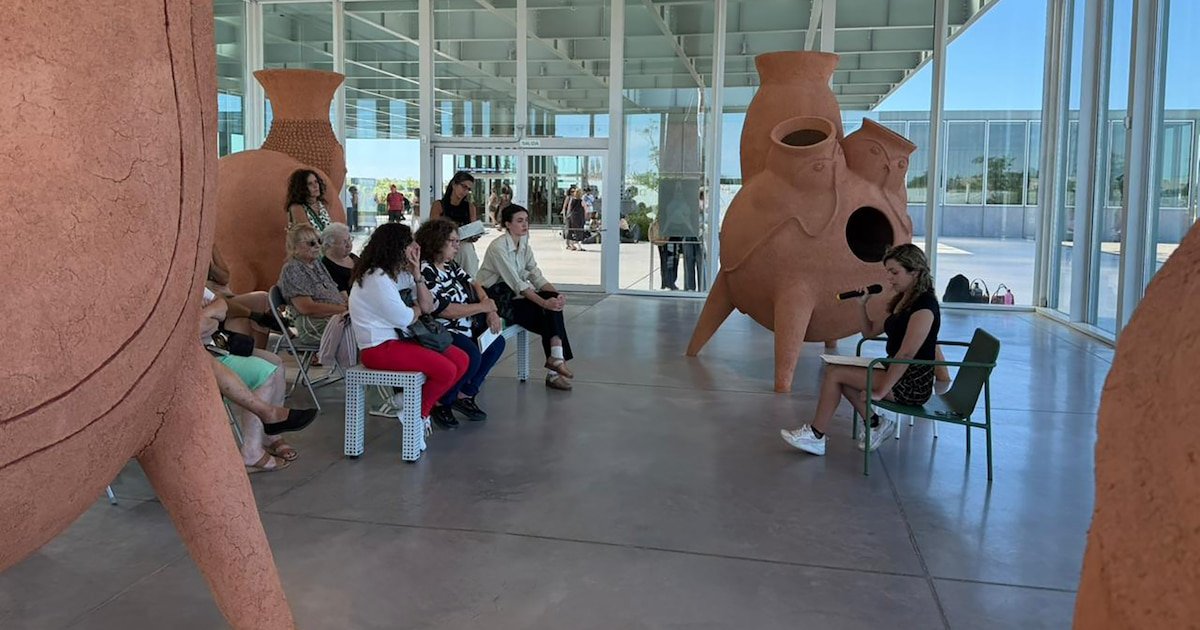
No puede ser más linda, más conmovedora, más increíblemente íntima la muestra del artista tucumano Gabriel Chaile en esa extraña sucursal del Museo Malba que es Malba Puertos y que está en Escobar,
Un poco al aire libre, un poco con salas de exhibición con paredes de vidrio, un poco con muchos talleres, un poco con la presencia de un curso de agua ahí, ahí mismo, para sentarse a su lado a pensar en lo que se acaba de ver o, bueno, a pensar nomás, que no está mal. Y todo gratis.
Gabriel Chaile hizo, para la Bienal de Venecia de 2022, un enorme grupo escultórico con piezas que medían entre tres y seis metros y pesaban más de 300 kilos. Y el coleccionista Eduardo Costantini las vio y las compró. Sí, hubo que traerlas desde Venecia, pero ese es otro tema.
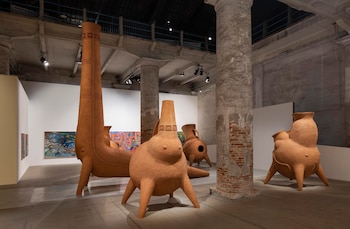
A simple vista se entiende que remiten a las vasijas indígenas que aparecen el norte argentino pero, tal vez por eso, que hablan de su familia. Son vasijas y son hornitos. Pero esas enormes vasijas tienen carita, expresión, a veces manos, y están dispuestas de manera significativa: por eso es enorme y está en el centro si abuela materna, Rosario Liendro. Así, como la abuela, se llama la obra. También están la madre -que carga dos niñitos-vasijitas- el padre y los abuelos paternos.
Las obras fueron a dar a la “Sala Chaile” y son la muestra permanente de Malba Puertos. Alrededor de ellas, el Museo -que dirige Eleonora Jaureguiberry- organiza actividades. Una de ella consiste en llamar a distintos autores y pedirles que escriban un texto inspirado en esta sala. Y luego, que lo lean ahí mismo.
Eso hizo este sábada Marie Gouiric, nacida en 1985 y autora de varios libros de poesía y de las novelas las novelas De dónde viene la costumbre (publicada por la editorial Random House en, 2019) y Ese tiempo que tuvimos por corazón (Random House, 2023).

Aquí el texto que leyó Gouiric, en plena sala. Lo tituló “El rincón donde yo me crecí”. El que habla, explicó, es Dios.
Marie Gouiric
Dices, y te equivocas con las palabras que eliges. Dejas bajo una transparencia el error que significaste para este mundo desde que llegaste. Es por ese error que yo te elegí, entre tantos.
Las piedras hablarían si nadie hablara, y tú eres esa piedra. Una piedra marrón, preciosa, que viaja y siempre vuelve a casa. Una piedra con un corazón conforme al mío, que saca cuerpos del barro y les da vida: una génesis caprichosa que yo también hice en el comienzo de todo. Debo advertirte sobre esto: donde hay vida, hay muerte, y ahora que pasaron los años y perdí el control de mi propia creación, multiplicada por toda la tierra, me doy cuenta: hice lo que hice para no estar solo. Tú no estás solo ni vas a estarlo. Yo estoy contigo. Sin embargo, sigue construyendo tus criaturas para que te acompañen y ganen el respeto del mundo. Un mundo que te creyó errado, a vos y a los tuyos, y por eso te elegí entre tantos. Amasa a tu madre, a tu padre, a tu abuela y a tus hermanos. No importa lo que hayan hecho, por tu mano se volverán más buenos, más puros y más sabios. Podrás perdonarlos y estarás en paz.
Cuando hables del pan, el sol brillará y será tu forma más inteligente para hablar del hambre. Cuando nombres los ladrillos que son estufa, el viento se detendrá y será tu forma más amable para hablar del frío. Cuando digas trabajo, las aves volverán a sus cuevas y será tu forma más humana para hablar de la falta. Cuando enumeres tus materiales, la tierra se mantendrá húmeda y será tu forma más oportuna para hablar del vacío. Cuando digas política, no sucederá nada y será tu forma más correcta para hablar de la intemperie.
Hiciste silencio en un principio para comprender. Tu silencio fue escuchado, por eso te elegí entre tantos. Luego produjiste el alimento en hornos como animales, y lo multiplicaste. Lo repartiste entre hombres, mujeres y niños, frente a un río que no te olvida aunque estés lejos. La naturaleza tiene sentimientos —y tú lo sabes—, emociones que se conservarán en lo que hagas siempre que confíes en todo lo que pienses, en todo lo que hables. Armarás tu familia ¿y a quién más? Nadie sabe, queda tiempo por delante.
Te protegeré de aquellos que se intimidan frente a lo que es diferente y lo destruyen. Del que habita bajo mi abrigo, nadie toca su morada. Entre mis plumas te cubriré y debajo de mis alas permanecerás seguro. Yo soy el gran yo soy, te elegí entre tantos y ese error que te dirían ser es tu fortaleza. Pudiste contar el rincón donde te creciste por no cargar con mandatos. Tuviste libertad para estudiar y abrazar una historia desmembrada y sin imágenes, donde se pierden los nombres y se confunden los relatos. Pero yo te di un arte heredado y maravilloso, y tú lo supiste desde siempre.
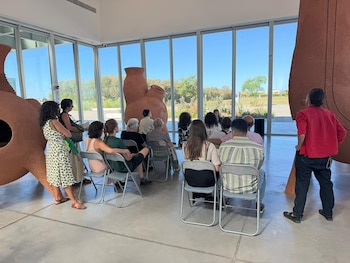
Era yo quien te murmuraba cuando niño y te decía: serás artista. Fue mi manera de nutrirte con un propósito. Hiciste todo lo que te mandé con la mirada siempre en el horizonte y eso te salvó de la locura. Te empujé con un amor vasto y suficiente para atravesar el túnel de la necesidad y el tiempo, accidente que amenazó con tragárselo todo, pero tuviste mi bendición —que algunos llaman suerte— y la conseguiste también para los tuyos porque eres bueno y los buenos todo merecen.
Que siempre tengas frutas de los árboles y trigo de la tierra para hacer el pan.
Malba—Puertos
Dirección: Alisal 160 Bahía, Puertos, Escobar, Buenos Aires.
Horario: Jueves a domingo de 12:00 a 19:00
Entrada: Libre y gratuita
Web: https://www.malbapuertos.org.ar/
Teléfono: 11 4526 2522
Jean Sport Aviation Center,conferencia,cultura,arte,escultura,audiencia,evento,cerámica,interior,público

 POLITICA3 días ago
POLITICA3 días agoEl Gobierno busca aprobar la reforma laboral y el Régimen Penal Juvenil antes del 1 de marzo

 SOCIEDAD3 días ago
SOCIEDAD3 días agoAvistaron una ballena azul en Chubut por primera vez en la historia

 INTERNACIONAL3 días ago
INTERNACIONAL3 días agoChaotic video shows passengers trading midair blows; plane forced to divert: reports
























